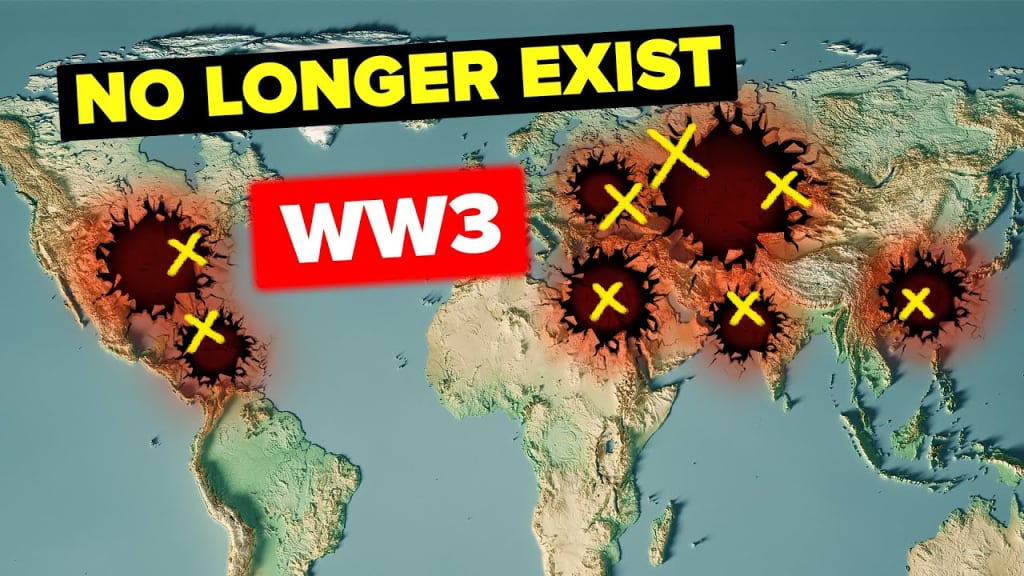Introduction
World war III In a world marked by geopolitical tensions and rapid advancements in technology, the specter of another global conflict looms ever larger. The hypothetical scenario of World War III has been a topic of speculation and concern among scholars, policymakers, and the general public. Additionally, this article delves into the possible causes, dynamics, and potential consequences of such a conflict, examining the key factors that might contribute to the outbreak of World War III. Furthermore, it sheds light on the geopolitical landscape and explores the intricate web of international relations that could play a pivotal role in shaping the course of events.https://en.wikipedia.org/wiki/Geopolitics#:~:text=Geopolitics%20(from%20Ancient%20Greek%20%CE%B3%E1%BF%86,on%20politics%20and%20international%20relations.

World War III-Geopolitical Dynamics in a Changing World
The geopolitical landscape has undergone significant transformations since the end of World War II.
Rising powers, shifting alliances, and competition for global resources create a volatile environment ripe for conflict. Moreover, the roots of World War III could be traced to tensions between major powers, territorial disputes, or economic rivalries. By examining historical precedents and current geopolitical hotspots, we can gain insights into potential flashpoints. In doing so, we may better understand the complex interplay of factors that could escalate into a global conflict.
World War III-The Role of Advanced Technologies
Unlike previous world wars, the third global conflict could be defined by the integration of cutting-edge technologies.
Artificial intelligence, cyber warfare, and space-based capabilities could play pivotal roles in shaping the battlefield. Furthermore, the article explores how technological advancements might redefine the nature of warfare and the challenges they pose for international norms and governance. By examining the intersections of technology and conflict, we can anticipate the evolving dynamics that may influence future geopolitical landscapes.
Interconnected Economies and Vulnerabilities
The world’s economies are more interconnected than ever before, but this interconnectedness also creates vulnerabilities.
Economic disputes, trade wars, or financial crises could trigger a chain reaction leading to global conflict. Furthermore, analyzing the intricate web of economic ties and potential points of strain provides a deeper understanding of how economic factors may contribute to the outbreak of World War III. By closely examining the economic landscape and potential catalysts for tension, we can gain valuable insights into the interconnected nature of global economies and the potential ramifications on geopolitical stability.
World War III-Nuclear Deterrence and the Threat of Mutual Destruction
The specter of nuclear weapons casts a long shadow over discussions about global conflict. The existence of mutually assured destruction (MAD) has, to some extent, deterred major powers from engaging in direct warfare. However, the rise of non-state actors and the potential for rogue states to acquire nuclear capabilities raise new challenges. This section explores the delicate balance of nuclear deterrence and the risks associated with the proliferation of nuclear weapons.
Impact on Global Society and Future Generations
Beyond the immediate military and geopolitical consequences, World War III would undoubtedly have profound humanitarian impacts. Mass displacement, refugee crises, and the destruction of infrastructure could reshape the global social fabric. Furthermore, the article investigates the potential toll on human lives, the environment, and the long-term implications for future generations. It emphasizes the need for international cooperation in preventing such a catastrophic scenario. By analyzing the multifaceted impacts, we can better comprehend the urgency of collaborative efforts to mitigate the far-reaching consequences of such global disruptions.
Conclusion
In conclusion, the hypothetical scenario of World War III is a sobering topic that demands careful consideration.
Examining conflict roots, tech impact, economic vulnerabilities, nuclear deterrence, and humanitarian fallout offers insight into dynamics leading to global conflict. Additionally, understanding these complexities is crucial for preventing worldwide strife. Moreover, this analysis helps unravel the complexities associated with the factors contributing to such conflicts. By delving into these various aspects, we can better grasp the intricacies and work towards developing strategies for maintaining global stability.
As we navigate the uncertainties of the future, the importance of diplomacy, international cooperation, and conflict prevention becomes increasingly evident. It is essential for the global community to work collaboratively towards a more stable and peaceful world, ensuring that the shadows of World War III remain confined to the realm of speculation rather than reality.